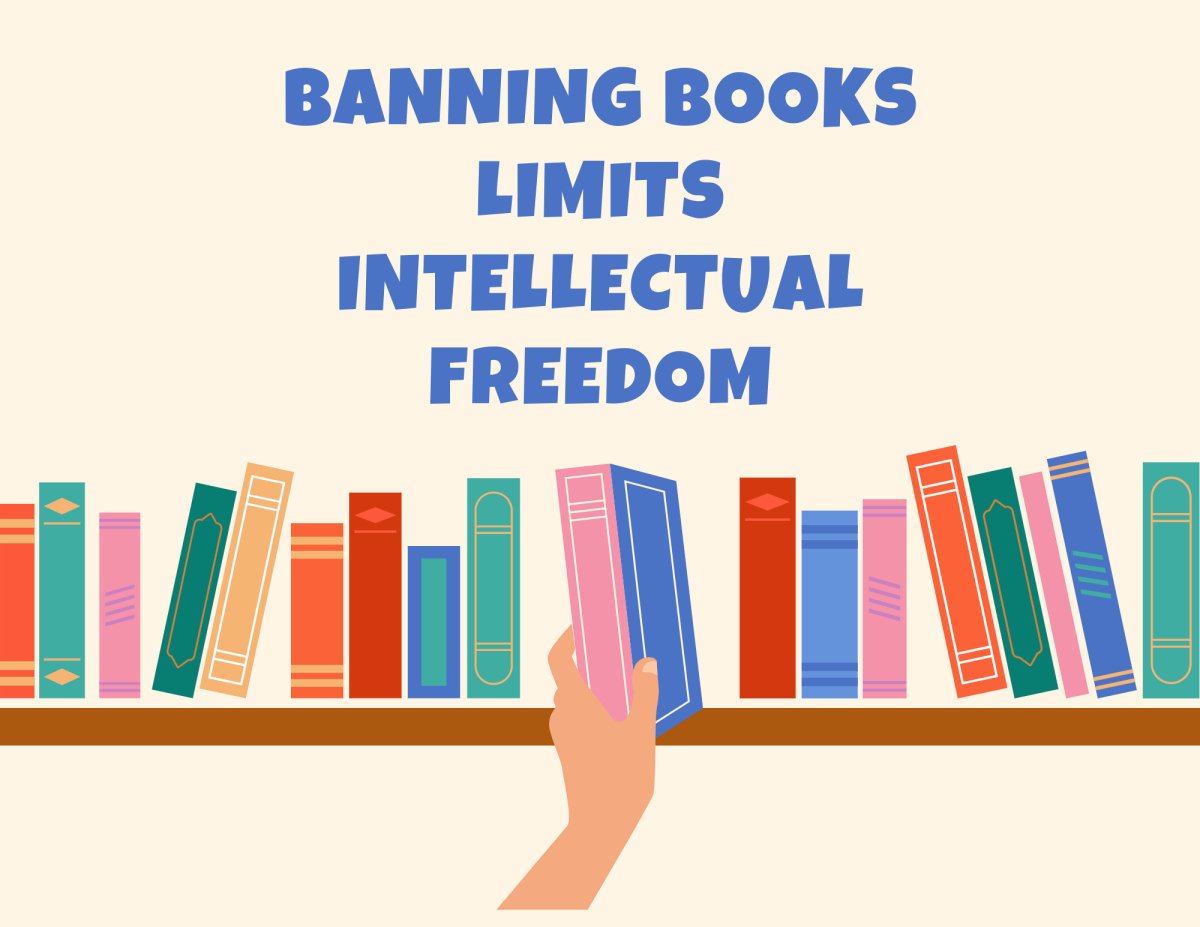In the 1950s, the State Library Reference Department began to ban books all over the United States. Books with content that was deemed inappropriate, unpatriotic or profane were removed from school campuses. In the district, there are over 370 banned books throughout all reading levels. While these books differ from school to school, it is clear that many of the prohibited books are determined by use of sexual content, sexual orientation and race theory.
“I think banned books are not a good thing,” Social Studies teacher Tamara Roberts said. “I think it’s important to have access to information, and informational freedom could be considered the right of everyone. Banning books takes away people’s intellectual freedom to read and find out about things that they’re interested in.”
While school libraries are a place to gather information and invite students to enjoy reading, books that could potentially help struggling students are forbidden on certain campuses. “Queer: The Ultimate LGBTQ Guide for Teens” by Kathy Belge and Marke Bieschke and “Trans Mission: My Quest to a Beard” by Alexis Bertie are examples of informational books that were written in order to educate and help struggling LGBTQ youth. These books have been removed from several FISD schools, because they do not align with the curriculum. However, many books in the library are used for pleasure and guidance, not curriculum-specific.
“I just don’t see what good it does for society to limit our ability to learn and grow, and then on top of that, the more you fight and say, ‘you can’t do this,’ the more people want to do it, “ English teacher Joseph Mochowski said.
Mochowski believes that if students are prohibited from their education at school, they will continue to look elsewhere to find answers. Another book that has been banned from FISD schools is, “Sex is a Funny Word: A Book about Bodies, Feelings, and YOU” by Cory Silverberg. While the district does provide sex education and encourages students to stay informed, it has removed this book for the same reason–non-alignment with the curriculum.
“It depends what it’s covering and what is going on, depending on who has access to it,” said Ariana Ledo ‘25. “Because if it’s a book, giving out information a little to advance for somebody young, it can kind of open up a different world. We don’t really need to have access to it.”
In November of 2022, “The Absolutely True Diary of a Part-Time Indian” by Sherman Alexie was removed from FISD schools. This book has mature content, and explores the trials and tribulations that Native Americans face, which has the potential to help students struggling with accepting their racial identity. This removal means curious students could have a harder time coping with the problems of adolescence.
Ironically, “1984” by George Orwell, which is read by AP Literature and Composition and IB students at Frisco High, is banned at other schools within the district. This book explores how when freedom is suppressed, people are unable to think for themselves and cannot become independent individuals. “1984” parallels the issue of banned books in modern society.
“I think that banning books, overall, is going to negatively affect students’ opportunities to be able to find books that they relate to or that they may need to read,” Roberts said. “I do think it’s important to note that if there are banned books, in an educational environment, there’s always other options like the public library.”

